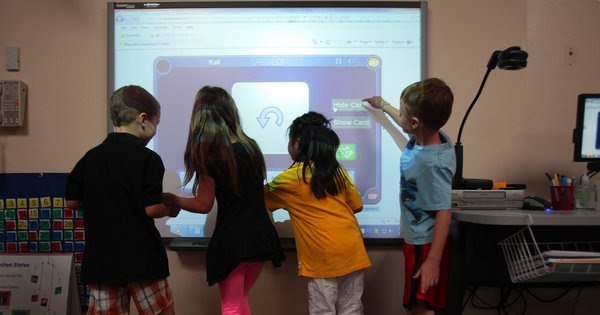Posts Tagged ‘test-scores’
Who Says This is The Classroom of the Future?
The New York Times has recently published several very good and seemingly unrelated articles…let’s try and connect some dots. What if we questioned the very premise behind naming some classrooms the “classrooms of the future” simply because they have been adding technology in literally mindless ways? What if the Education of the Future (sometimes also…
Read MoreUpdate: Expo Day; Top 15 Articles of 2009
In this January issue of our eNewsletter, we will first brief you on the enlightening demos that will take place on Wednesday, January 20th, as part of the SharpBrains Summit, and then present the 15 most stimulating SharpBrains articles of 2009. Expo Day If you want to see and discuss the latest programs and technologies for…
Read MoreArts and Smarts: Test Scores and Cognitive Development
This is an interesting article from Greater Good Magazine, which talks about how test scores activates cognitive development.
Read MoreSchools: what should they do, and for whom?
We read today how Panel Urges Schools to Emphasize Core Math Skills (Washington Post). Now, there is a more fundamental question to consider: what should the schools of the XXI century look like and do?. To create a much needed dialogue, I asked one the most thoughtful education bloggers around to share her (I guess it’s “her”)…
Read MoreBrain Connection: Eric Jensen on Learning and the Brain
Eric Jensen is a former middle school teacher and former adjunct professor for several universities including the University of California, San Diego. He co-founded the Learning Brain Expo, a conference for educators, and has written 21 books on the brain and learning. Jensen is currently completing his PhD coursework. His most recent book, Enriching the…
Read MoreSharpBrains in Scientific American Mind/ Brain Health Blog and Newsletter
We were very happy to discover that Scientific American Mind has highlighted SharpBrains in their June/July 2007 issue!If you are here due to that issue, we’d like to welcome you and show you around a bit. You might enjoy: Our Neuroscience Interview Series in which we interview some of the leading neuroscientists in brain fitness, including: Dr. Elkhonon Goldberg on Brain Fitness Programs and Cognitive Training, Cognitive Simulations for Basketball Game-Intelligence: Interview with Prof. Daniel Gopher, Working Memory Training and RoboMemo: Interview with Dr. Torkel Klingberg, Memory training and attention deficits: interview with Notre Dame’s Bradley Gibson, and an upcoming interview with Yaakov Stern, the leading researcher behind the Cognitive Reserve theory
Read More
